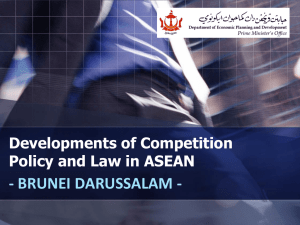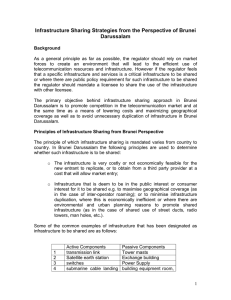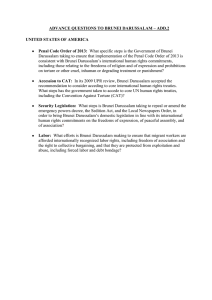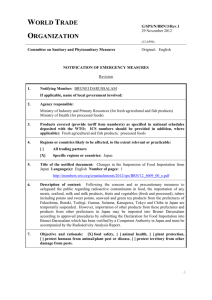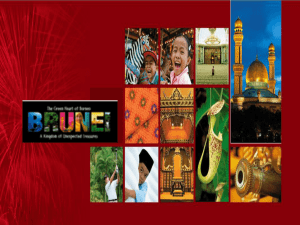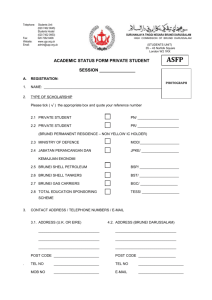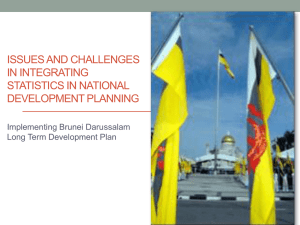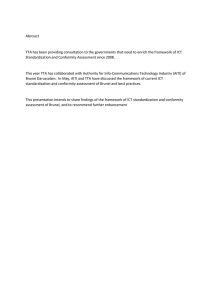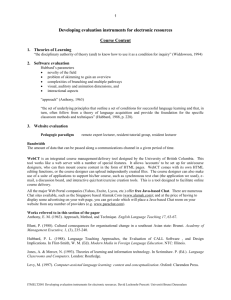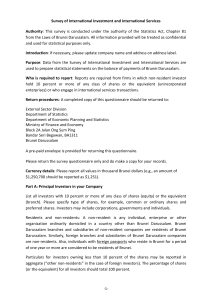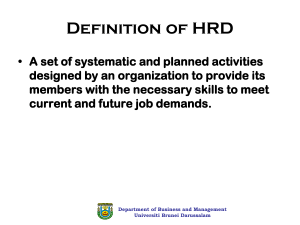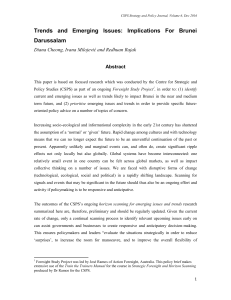ADVANCE QUESTIONS TO BRUNEI DARUSSALAM – ADD.1 GERMANY
advertisement
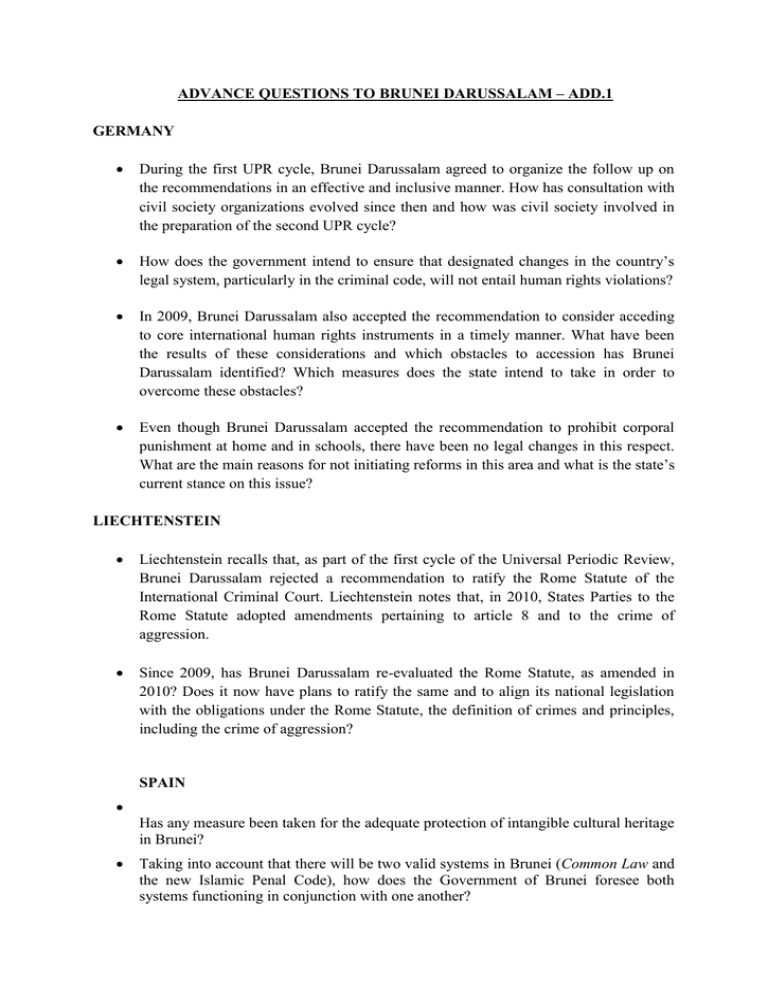
ADVANCE QUESTIONS TO BRUNEI DARUSSALAM – ADD.1 GERMANY During the first UPR cycle, Brunei Darussalam agreed to organize the follow up on the recommendations in an effective and inclusive manner. How has consultation with civil society organizations evolved since then and how was civil society involved in the preparation of the second UPR cycle? How does the government intend to ensure that designated changes in the country’s legal system, particularly in the criminal code, will not entail human rights violations? In 2009, Brunei Darussalam also accepted the recommendation to consider acceding to core international human rights instruments in a timely manner. What have been the results of these considerations and which obstacles to accession has Brunei Darussalam identified? Which measures does the state intend to take in order to overcome these obstacles? Even though Brunei Darussalam accepted the recommendation to prohibit corporal punishment at home and in schools, there have been no legal changes in this respect. What are the main reasons for not initiating reforms in this area and what is the state’s current stance on this issue? LIECHTENSTEIN Liechtenstein recalls that, as part of the first cycle of the Universal Periodic Review, Brunei Darussalam rejected a recommendation to ratify the Rome Statute of the International Criminal Court. Liechtenstein notes that, in 2010, States Parties to the Rome Statute adopted amendments pertaining to article 8 and to the crime of aggression. Since 2009, has Brunei Darussalam re-evaluated the Rome Statute, as amended in 2010? Does it now have plans to ratify the same and to align its national legislation with the obligations under the Rome Statute, the definition of crimes and principles, including the crime of aggression? SPAIN Has any measure been taken for the adequate protection of intangible cultural heritage in Brunei? Taking into account that there will be two valid systems in Brunei (Common Law and the new Islamic Penal Code), how does the Government of Brunei foresee both systems functioning in conjunction with one another? Regarding the new Islamic Penal Code, how would one be identified beyond reasonable doubt as a Muslim or non-Muslim? How will these measures be publicized and applied to foreign persons who visit the country?
